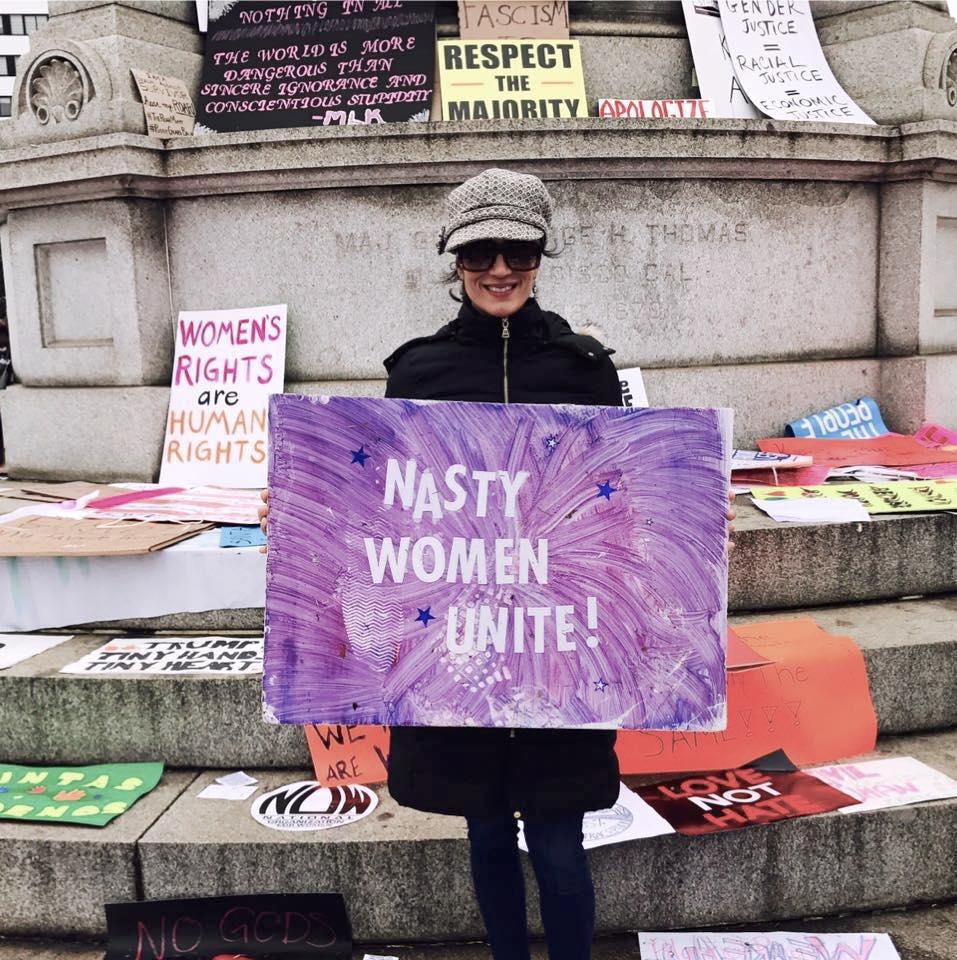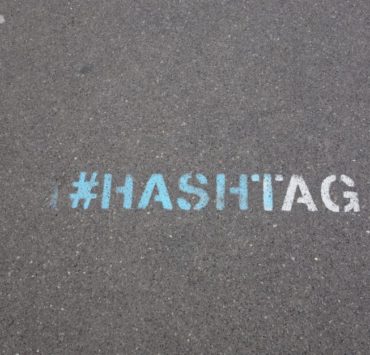
Like many of you, I’ve felt so much anger–rage even–over the last week. I keep thinking about Audre Lorde’s writing about anger in “The Uses of Anger” (1981) for so many reasons. It so eloquently addresses shared anger within both the context of white nationalist populism AND the uncritical liberal appeals of “we are all immigrants” and to “good Muslims” and “respectable” minority citizen-subjects in the name of opposing Trump’s anti-immigrant/anti-refugee/anti-Muslim policies. It helps me to understand how anger in both of these contexts is okay and necessary.
Lorde writes: “My response to racism is anger . . . Women responding to racism means women responding to anger, the anger of exclusion, of unquestioned privilege, of racial distortions, of silence, ill-use, stereotyping, defensiveness, misnaming, betrayal and coopting. . .”
“[A]nger expressed and translated into action in the service of our vision and our future is a liberating and strengthening act of clarification, for it is in the painful process of this translation that we identify who are our allies with whom we have grave differences, and who are our genuine enemies.”
“We cannot allow our fear of anger to deflect us nor to seduce us into anything other than the hard work of excavating honesty . . . Any discussion among women about racism must include the recognition and use of anger. It must be direct and creative, because it is crucial.”
“. . . yes, it is very difficult to stand still and listen to another woman’s voice delineate an agony I do not share, or even one in which I myself may have participated.”
“To turn aside from the anger of Black women with excuses or the pretext of intimidation, is to award no one power–it is merely another way of preserving racial blindness, the power of unaddressed privilege, unbreached, intact. For guilt is only another form of objectification.”
I kept thinking about Lorde’s words in the days leading up to, during, and following the March on Washington, which I attended with family and friends.
The sign I am holding is a telling reminder of the *difference* between hate and rage, the difference between (Trump’s) misogyny and (our) feminism. Here again, is Lorde: “Hatred is the fury of those who do not share our goals, and its object is death and destruction. Anger is the grief of distortion between peers and its object is change.”
And despite mobilizing anger against hate, the March laid bare the grief of distortion between feminist peers because the March was a white feminist project until it wasn’t. For many, including myself, the choice to attend was a fraught and cognitively dissonant one–filled with rage at the exclusion of women of color and transwomen under the nominal banner of “feminism” and even “feminist womanhood” and also joy at the prospect of knowing I would get to hear Angela Davis and Kamala Harris and Janet Mock speak against the violences and contingencies of such political identities. Such choices can be enraging because they can often feel like solidarity under duress. In other moments, the rage can feel like being what feminist scholar Sara Ahmed calls a “feminist killjoy,” the feminist who kills another feminist’s joy (because she cannot be/refuses to be joyful in her feminism).
Drawing on Lorde’s points about how the Black woman who feels pressed to let go of her anger, in order for white women to “move on” in their feminism, Ahmed writes: “Does the feminist killjoy actually kill joy or expose bad feelings that get hidden under public signs of joy”? What would it mean to rethink collectivity not in terms of optimism but through the affirming and productive power of anger and other ugly feelings?

Vanita Reddy is an Associate Professor of English at Texas A&M University. Her articles have appeared in the journals South Asian Popular Culture, Contemporary Literature, Meridians: feminism, race, transnationalism, and the Journal of Asian American Studies. She is the author of Fashioning Diaspora: Beauty, Femininity, and South Asian American Culture (Temple UP, 2016), one of the first books to consider beauty and fashion as a point of entry into an examination of South Asian diasporic public cultures. She is also co-editing an issue of Scholar and Feminist Online called “Feminist and Queer Afro-Asian Formations,” which is forthcoming in Fall 2017







